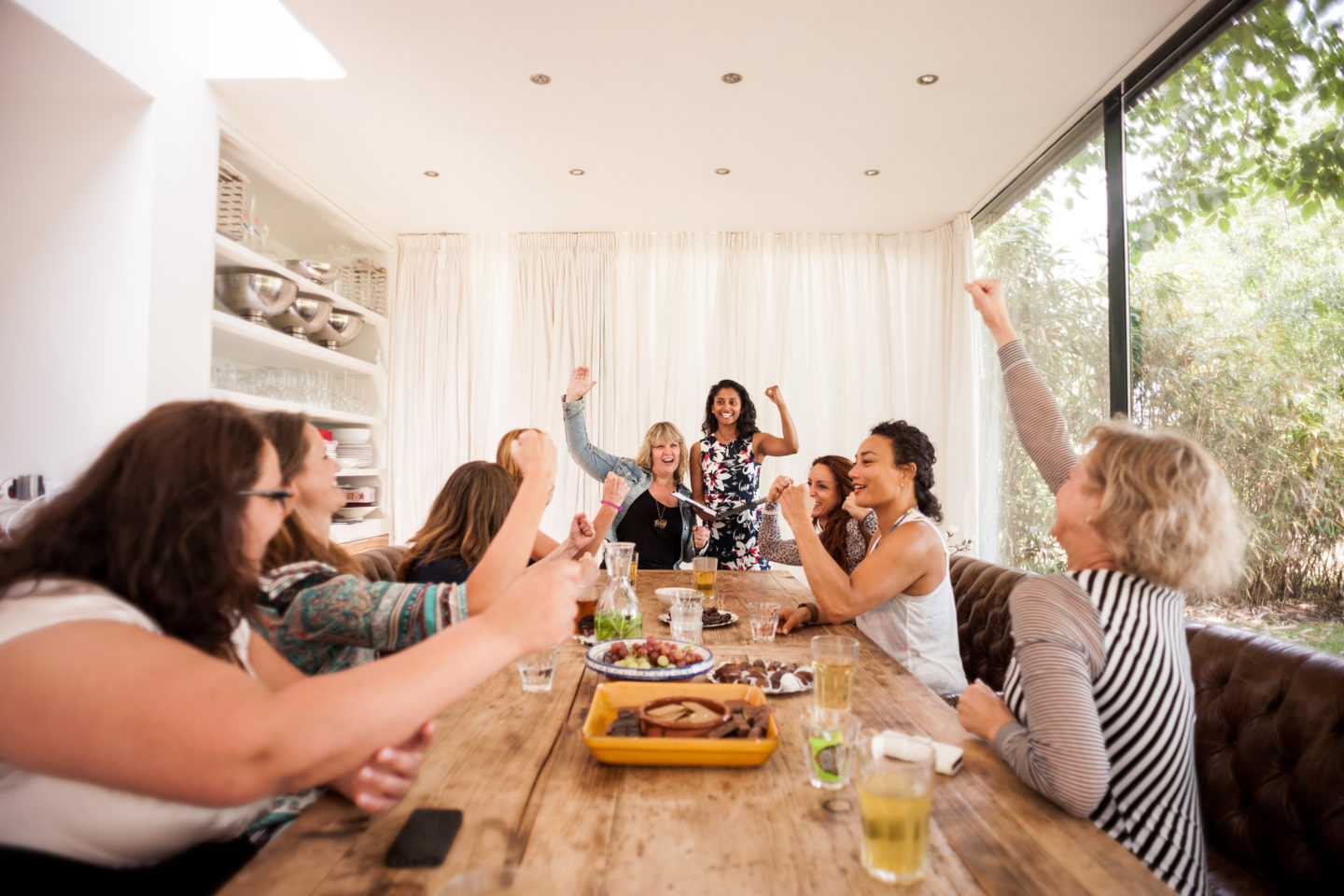In her breathtaking book, milk and honey, Rupi Kaur writes:
“my heart aches for sisters more than anything
it aches for women helping women
like flowers ache for spring”
Women helping women is a powerful force, and a radical one. Of course, I’m not the first to write about this and I won’t be the last. But while I have a space to say it, I might as well join the chorus of people celebrating female friendship for all it is worth.
Female friendship is not just important because it is empowering, beautiful, and magical, or because all women are fabulous goddesses and unicorns – although I’m as prone to Leslie Knope syndrome as the next gal. It is true that women and girls are generally taught to be emotionally literate and emotionally supportive in a way that boys simply are not, and this allows us to lift each other up in beautiful ways. But we are also taught that we should be competing with each other for male attention, that we are “catty” or “bitchy,” and a whole host of other awful messages. When women connect deeply with each other in defiance of those stereotypes, we create a radical space in which to unlearn the worst things we’ve been taught about ourselves.
Of course, women are not just walking sun-rays lighting each other’s way at all times – that would be ridiculous. People are imperfect, and we treat each other imperfectly. And meaningful, supportive relationships are not innate; they take a lot of work. But we use specific language, loaded with particular negative connotations, to describe the ways women relate to each other: words like drama, gossip, clique, etc. These words all suffer from a great deal of overuse in criticizing healthy female connections, and a great deal of neglect when it comes to describing toxic dynamics that male spaces sometimes create. They also obscure and even undermine positive communication and connection between girls and women, cutting away at the power we have in our relationships.
When we shame women for being emotional or dramatic, we are often deriding healthy conflict and self-expression. What many call “gossip” can be a way of processing and surviving the sexism that surrounds us, including finding safe ways to vent to other women. The word “clique” is overused simply to describe any close-knit group of girls or women. So let’s actively reframe our perceptions of how girls and women interact with each other and with the world.
The power of these connections extends past individual friendships and mentorships, and into our movements. From girls and young women organizing to protest sexist and racist dress codes, to full-blown activist movements like #BlackLivesMatter which are started and led by women, solidarity and collaboration between women is necessary to further our visions of a more equal world.
It’s no wonder we’re taught that our friendships are dangerous; they are extremely hazardous to an oppressive status quo. And, with the capacity to navigate conflict that is so often written off as dramatic or bitchy, we can hold each other accountable within the movements we create or participate in. The feminist movement itself is an incredible example; in many instances, what is dismissed as in-fighting is truly important dialogue about how to grapple with the damaging history of white feminism, and how to be truer to the voices and experiences of women of color, low-income women, trans women, queer women, women with disabilities, and people at as many intersections of identity as possible.
When I started writing this post, I tried to think of an opening anecdote that perfectly encapsulated the power of female solidarity and support in my own life. Memories flooded in: of the lifelong mentorship, friendship, and mischief-making of my two remarkable older sisters; of the diverse range of brilliant women in my female-dominated family; of encouragement from teachers, mentors, camp counselors; of my own campers and students; of groups of friends that adopted me in high school and college in my toughest moments and turned my life around; of peers, co-workers, roommates, drinking buddies; of friends who support each other in ways romantic partners never did; of women who have guided me and engaged with me in the struggle for justice and for understanding of what justice means; I could go on. I was unable to choose just one story – partly because most of the memories are pretty boring standing alone, but mainly because one memory alone could never reflect the vast influence of female relationships. It’s bigger than any one person’s understanding. We ache for it because we need it, and our world needs it.




comments